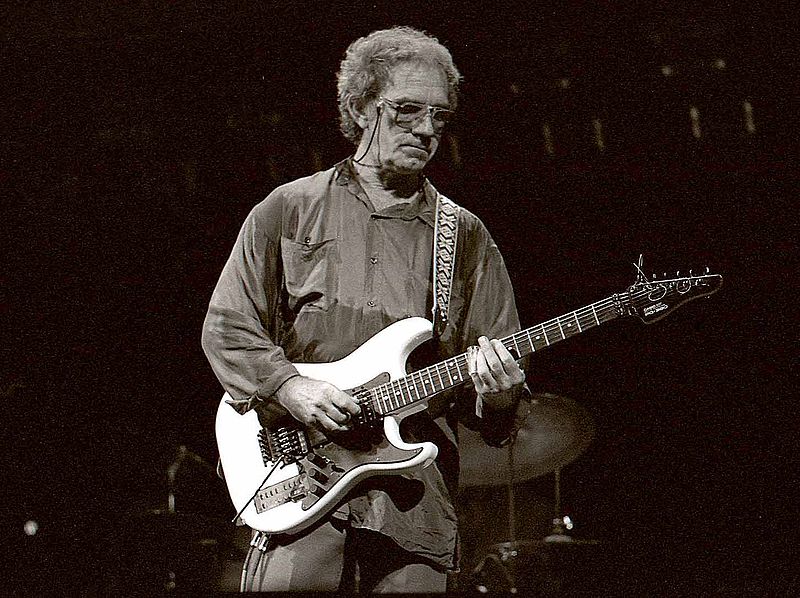Less is more with JJ Cale's accessible and unassuming music
The problem with Cale's tunes is they are such easy listening that you might think that is all they are

Your support helps us to tell the story
From reproductive rights to climate change to Big Tech, The Independent is on the ground when the story is developing. Whether it's investigating the financials of Elon Musk's pro-Trump PAC or producing our latest documentary, 'The A Word', which shines a light on the American women fighting for reproductive rights, we know how important it is to parse out the facts from the messaging.
At such a critical moment in US history, we need reporters on the ground. Your donation allows us to keep sending journalists to speak to both sides of the story.
The Independent is trusted by Americans across the entire political spectrum. And unlike many other quality news outlets, we choose not to lock Americans out of our reporting and analysis with paywalls. We believe quality journalism should be available to everyone, paid for by those who can afford it.
Your support makes all the difference.I haven’t got time or skill enough to write the tribute I would like to pay to JJ Cale, who died last Friday.
But I still feel a need to unpick what made his music remarkable and why his songs will last.
These should be words so simple and true as to send a new generation to chill out with his music late at night, or on awaking, or in the middle of the afternoon. Any ol’ time would do to lay back and soak up a tune or two. Ideally, the sun or moon would come out, throwing warm shadows to lie in.
These words would drop a beautiful insight or observation into your thoughts and let this ripple out and change your mood. The day or night would stand still.
As I say, I don’t have the time or skill, to do this - but I know a man who does. The man who wrote this:
‘To see a world in a grain of sand
And a heaven in a wild flower
Hold infinity in the palm of your hand
And eternity in an hour.’
That’s the opening of Auguries Of Innocence by William Blake, who unintentionally captured in a few words how great art works on us. Two hundred years early, he explained how Cale’s songs, a very different mix of innocence and experience, play for us when at their best.
Now I know I have to step carefully in my claims in order to avoid the stinking pile of hype deposited by pretentious rock music criticism down the decades. Not for a moment would I want anybody to think Cale’s tunes anything less than highly accessible and unassuming. The problem is they are such easy listening that you might think that is all they are.
Behind the relaxed sound, there’s a lot of work. This may seem ironic, given that Cale saw his music as a way out of avoiding working for a living. You could easily think Cale was too relaxed – he apparently took five years off at one point, living in a trailer without a phone and declining all offers to perform while just enjoying a simple life on his royalties, playing around in a technically innovative home studio.
It was that overwhelming inclination to walk a different path, ignoring trends and typical behaviours, that is at the heart of why his music and the lyrics are so effective. His mix of blues, jazz, country, rockabilly, whatever, is his own. Years spent noodling around, pioneering ideas around drum machine usage and pick-up resonance and the like, sit behind the simple perfection of his songs. As does extensive study of popular and folk music. His guitar playing seemed to involve scarcely any pressure on the strings, while he almost whispers the lyrics clearly into our ears… an illusion of effortlessness that is really hard to do.
How did he get to be that good? I estimate he might have spent more than 50,000 hours playing and assimilating the learning that sits behind his first, perfectly-formed album, Naturally. And then he carried on with another 40 years hard graft dedicated to developing his particular talent. (That’s another nail in the coffin of Malcolm Gladwell’s thesis that it takes 10,000 hours to deliver just about any genius.)
And now all we have are a bunch of three-minute tunes with lyrics so simple and sparse that you’ll never need to think twice as to what is being said. But you’ll never tire of listening to them.
JJ Cale’s leaves a legacy of music that is a lyrical demonstration of many old sayings – that it’s harder to write short than long, that small is beautiful, that less is more, and that you can see a world in a grain of sand.
I better stop right here. I’ve said way too much. You can edit me down to feelings of loss and love.
Join our commenting forum
Join thought-provoking conversations, follow other Independent readers and see their replies
Comments